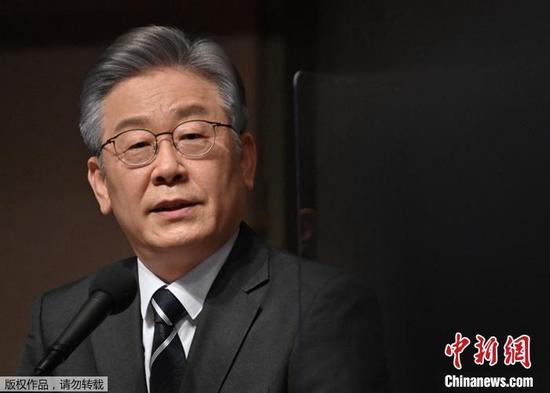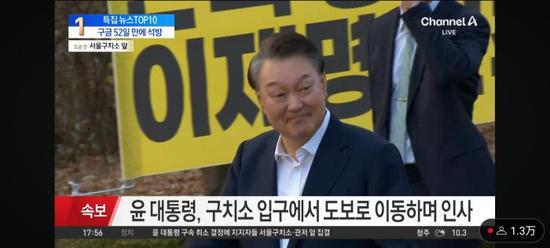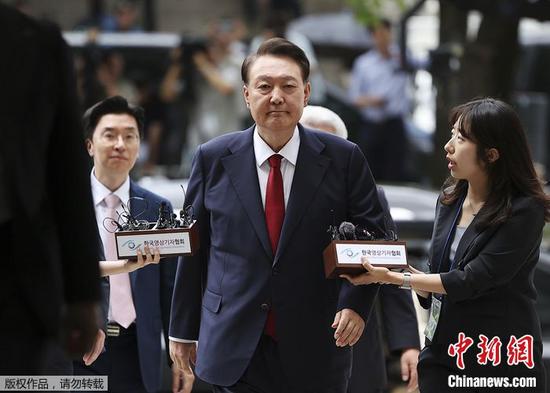


South Korea’s Seoul Central District Court issued an arrest warrant for former President Yoon Suk-yeol in the early hours of July 10th. The Special Prosecution Investigation Team, responsible for investigating the emergency martial law incident, subsequently executed the arrest. This marks Yoon Suk-yeol’s second arrest within four months following his release.
On July 9th, 2025, local time in Seoul, South Korea, former President Yoon Suk-yeol (center) arrived at the court to attend a hearing where the Special Prosecutor requested to review his arrest warrant.
December 3rd, 2024
Shocked both within and outside the political spectrum. A month later, he was arrested. However, on March 7th, 2025, Yoon Suk-yeol was released by Judge Choi Kye-ran of the Seoul Central District Court, causing widespread outrage in South Korean public opinion.
In early April, Yoon Suk-yeol was impeached and removed from office, yet he remained embroiled in legal proceedings. The Special Prosecution Investigation Team, investigating the emergency martial law incident, uncovered new suspicions that once again sent Yoon Suk-yeol back to Seoul’s detention center.
Why was Yoon Suk-yeol arrested again?
Not more than half a year had passed since his last arrest, why was he arrested again?
The Special Prosecution Investigation Team applied to the Seoul Central District Court for the arrest of Yoon Suk-yeol, alleging that he obstructed special duties, violated the “Presidential Guard Law,” abused his power, and forged official documents.
The team submitted a 66-page document to the court, accusing Yoon Suk-yeol of having committed crimes against high-ranking public officials during the investigation by the Public Affairs Investigation Division (hereafter referred to as the PAID) and the police on January 3rd, 2025. According to a report by the “Korea Daily” on January 7th, during the first execution of the arrest warrant by the PAID and the police on January 3rd, 2025, Yoon Suk-yeol questioned the then head of the presidential guard, saying: “Why is the gate so easily opened?” At the time, Kim Chung-hoon, the then deputy chief of the guard, who was with the guard director at the time, replied: “I led people to block the police.”
According to reports by Yonhap News Agency, on January 11, 2025, prior to the second execution of a warrant for arrest by the Public Prosecutor’s Office and the police, Yoon Suk-yeol, during a luncheon at the Presidential Residence Restaurant with Kim Sung-hun, stated, “The police will come back to execute the warrant. ‘As long as you bring out your gun, the police will be scared. Bring out your gun.'”
KBS TV reported that Yoon Suk-yeol was implicated in the phone information charge, and on December 7, 2024, he made three calls to Kim Sung-hun, urging him to delete the call records, which are considered serious crimes equal to internal strife and prove that Yoon Suk-yeol had destroyed evidence. In March 2025, Yoon Suk-yeol was released from detention and walked out of the detention center.
Photo source: Video screenshot from Channel A Korea
Yoon Suk-yeol is facing criminal charges for allegedly “inciting internal strife.” The series of new charges now being added will gradually enter the trial phase.
The charges against Yoon Suk-yeol are those of a leader in internal strife. If convicted, his punishment could only be life imprisonment or death. Since South Korea has effectively abolished the death penalty, being sentenced to death is equivalent to life imprisonment. Additionally, with the addition of a series of new charges, according to the prediction of the current South Korean Seoul Eastern District Prosecutor’s Office Chief, Lee Eun-jin, Yoon Suk-yeol might spend a “long time” in prison.
According to Korean media, South Korean President Moon Jae-in stated on May 31 that if Yoon Suk-yeol were sentenced to life imprisonment, he should not receive pardon.
“Choi Dong-hak and Roh Tae-woo were pardoned, giving Yoon Suk-yeol the courage to incite internal strife because he felt he could receive a special pardon. If Yoon Suk-yeol is convicted this time and cannot ever be released, then there will be no president who dares to instigate internal strife,” said Moon Jae-in.
According to KBC, former South Korean President Roh Moo-hyun’s son-in-law, Democratic Party lawmaker Choi Hee-yeon, proposed in December 2024 to amend the “Pardon Law,” prohibiting the president from pardoning individuals convicted of internal strife and external danger offenses.